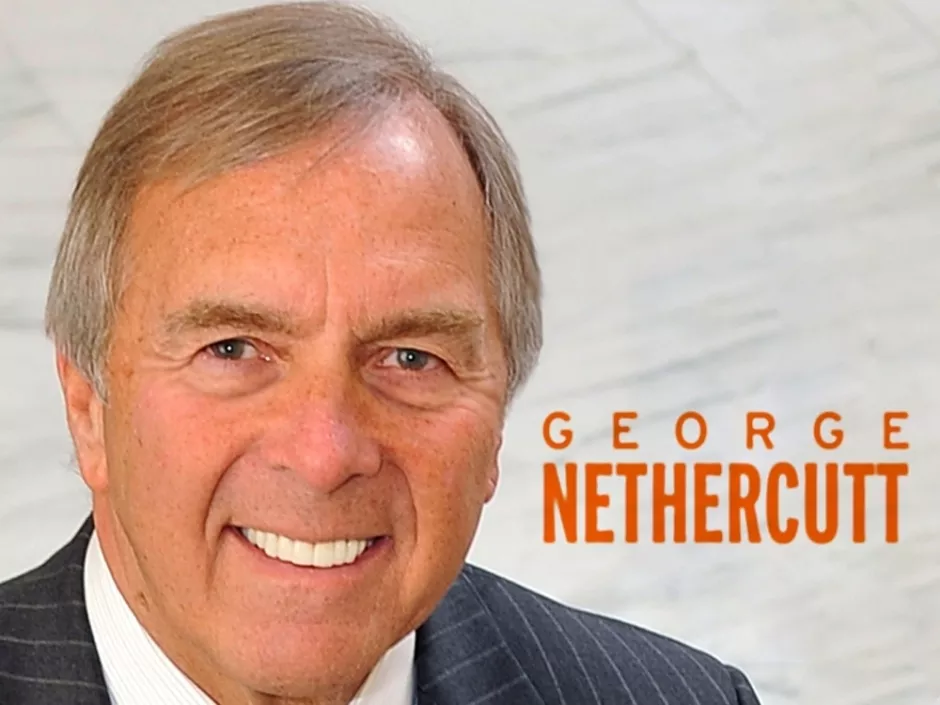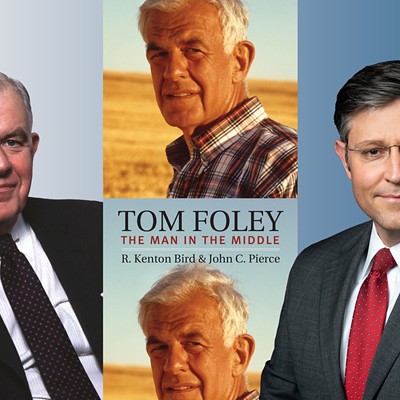Having returned recently from delivering a lecture series to students and faculty at a university in Great Britain, I found a disturbing culture of ignorance abroad about longstanding principles underlying America’s place in a dangerous world and a regrettable tendency to forget times when the United States has been a reliable source of support for people everywhere. In some respects, it mirrors a similar American ignorance of our country’s historic achievements and benevolent personality.
Students today are largely unaware of the lessons of major 20th-century events. World Wars I and II, and why they were fought, seem ancient to them and irrelevant to today’s problems. Yet the conflicts that marked the last century established dueling superpowers as the globe was divided between freedom-loving nations and those that sought suppression of liberty.
What happened back then is worthy of remembrance because the world today is more subtly divided along those same lines; dictatorships now masquerade as “controlled capitalism.” The half-century Cold War between the United States and the former USSR established a predictable and consequential global relationship; the Americans and Soviets represented free vs. totalitarian societies. Their competition was underscored by nuclear arsenals that forced mutual restraint, punctuated by international anxiety about the consequences of nuclear war.
Today’s international dangers are less
state-sponsored and therefore more unpredictable, as smaller countries
seek to develop deadly and aggressive nuclear capability amid social
unrest in traditionally controlled societies (Iran, Yemen, Saudi Arabia,
Syria, Libya). Uprisings there pose new threats to peace and place
fresh and unusual burdens on international stability under traditional
rules of post-World War II conduct. This reality confounds policymakers
and analysts searching for effective American foreign policy consistent
with the Cold War model.
Many international students I encountered in the U.K. came to their global views through the prism of America’s actions after 9/11. Most have concluded that the United States acted without justification by deposing Saddam Hussein, and no amount of factual information to the contrary (numerous U.N. resolutions violations by Iraq, Hussein lawlessness, Iraqi aggression against the U.S., threats to Iraq’s neighbors or bipartisan congressional consensus for action) seems persuasive to students or their professors. American support for Israel is considered nearly satanic. President Obama’s “leading from behind” nonsense is deemed profound.
Their views threaten the likelihood that American standards for global freedom in this new century will be long upheld and embraced as good for humanity. Seeing America for the help it provides to other freedom-seeking people is de-emphasized in today’s university culture. To do so mistakenly overlooks the world’s need for a strong nation like the United States to act as a bulwark against nations whose motivations are to suppress freedom.
While it’s encouraging that foreign students show interest in the U.S. model, some American Studies students held a generally bitter attitude about American foreign policy that bordered on a deep cynicism uncharacteristic for their age and stage in life. Their negativity about America warns us about how the American story is presented to the greater world; that story should engender gratitude, not enmity. Americans can’t assume that citizens of other countries know and appreciate the struggles for freedom the United States has experienced and supported over its 235-year history.
We therefore have an obligation to better explain the bases for modern foreign policies in order to export our benevolent approach to international affairs; explaining the “why” of American foreign policy bolsters the “what” of U.S. actions.
Too many forget that the United States helped liberate Europe in World Wars I and II, contributing a massive 10 percent of our then-GDP for European recovery between 1945 and 1948. The U.S. has come to the aid of numerous countries facing oppression, providing hundreds of billions in foreign and military assistance since the end of the Cold War. Foreign assistance now goes to 18 major countries in the form of food aid, disaster relief, economic development, anti-drug assistance and global health initiatives, among other functions.
When other countries are in need, the U.S. has a rich history of helping out.
In a freshman class lecture to mostly British students that I conducted with a former Democratic Congressman friend, one young woman courageously declared before her classmates, “I love America.” Another male student responded to a hypothetical about Iran perfecting a nuclear weapon prepared to attack Israel, and without hesitation said, “Israel should attack before it is attacked.”
He may not have realized that he was embracing the controversial George W. Bush “Preemptive War” doctrine employed in Iraq. University students today are the next generation of leaders; what they learn of America will have a long-term bearing on international relations and the future prospects for peace among nations.
The 21st century requires America to lead — from the front — to develop trusting, lasting international relationships that enhance and support emerging democracies, encourage trade and market-based economic growth and repel dictatorships. Securing a free world requires superpower encouragement and reliable foreign policies, projected positively abroad.
Despite the left-wing nature of university thought, history proves that the U.S. emphasizing freedom abroad — not just foreign aid — is a source of salvation for all who seek liberty.
The United States, particularly President Obama, should more often unashamedly remind the world of America’s many virtues, so that future generations will embrace American ideals.
George Nethercutt is the former congressman representing the 5th District of Washington. His column appears here once a month.




















